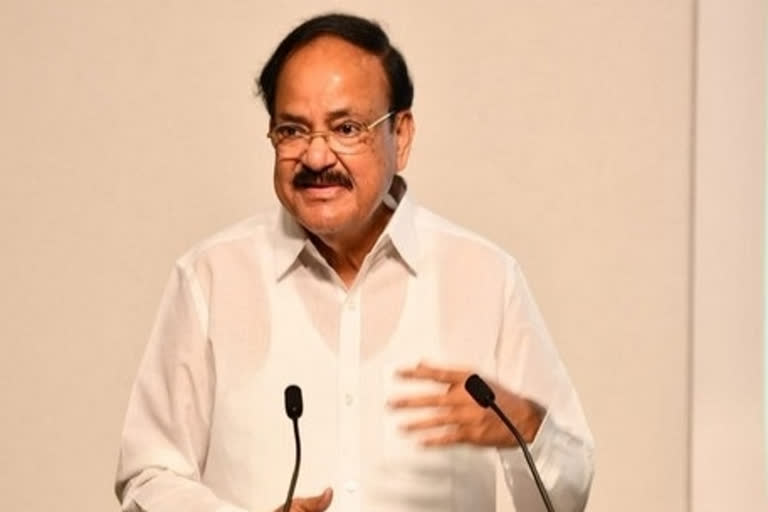Hyderabad:Vice President M Venkaiah Naidu on Saturday called upon scientists and researchers to come up with new innovations and ideas to find solutions to the challenges faced by Indian farmers.
He said there has to be a meeting of minds between scientists, researchers, Krishi Vigyan Kendras and farmers, who are the main stakeholders, to adopt best practices and make agriculture remunerative.
Naidu was speaking after inaugurating the second edition of 'Exhibition and Conference on Agri-Technology and Innovation' at the Prof Jayashankar Telangana State Agriculture University here.
Observing that a farmer is the best teacher on agriculture, he said that miracles can be created if farmers' knowledge relating to the field and the research of the scientist are brought together.
The Vice President suggested the students studying agriculture spend half their time in classrooms and the rest with farmers to gain first-hand practical knowledge and acquaint themselves with the problems of the farmers.
Naidu also called on agriculture universities to focus on developing new varieties, including pest-resistant and climate-smart variants, apart from enhancing the productivity levels.
Calling for collective efforts to achieve self-sufficiency in food production, he said a country like India should not depend on imported food security.
Stating that freebies and loan waivers were not the solution, Naidu said that they only provide temporary relief. What was needed were the long-term and holistic measures that make agriculture viable and profitable, an official release quoted him as saying.
Listing some such long term measures, he suggested quality power supply, development of rural infrastructure, including godowns, cold storage facilities and refrigerator vans, apart from ensuring quality inputs and timely and adequate credit to the farmers.
Calling for diversification of agriculture, the Vice President said that farmers should be encouraged to grow new crops in addition to traditional crops.
He also stressed the need for farmers to take up ancillary activities such as poultry, dairy, horticulture and aquaculture to supplement their income.
